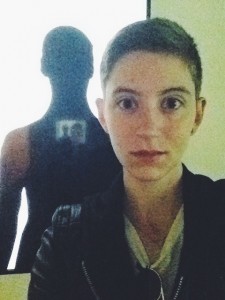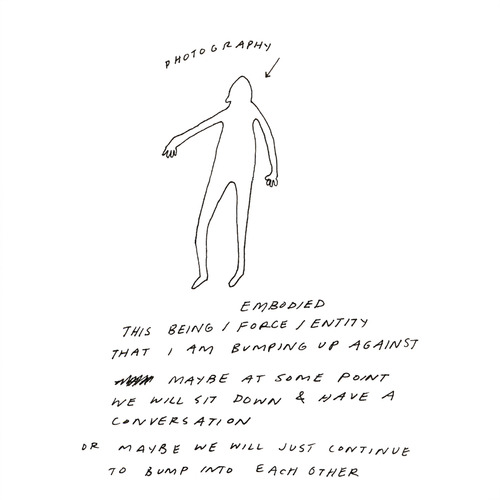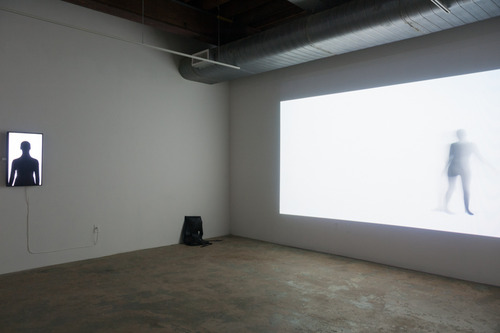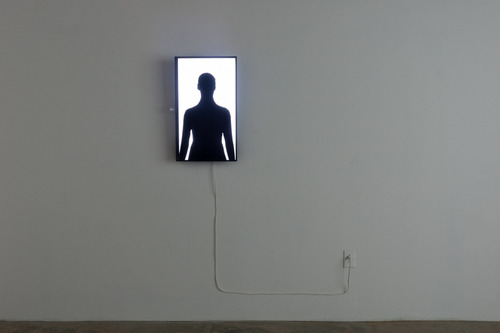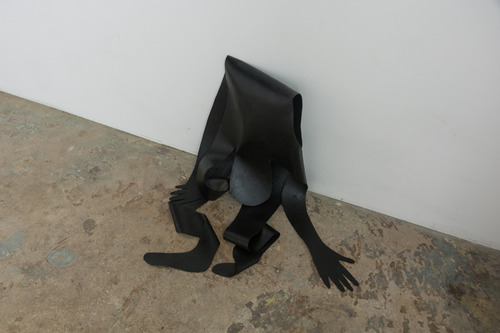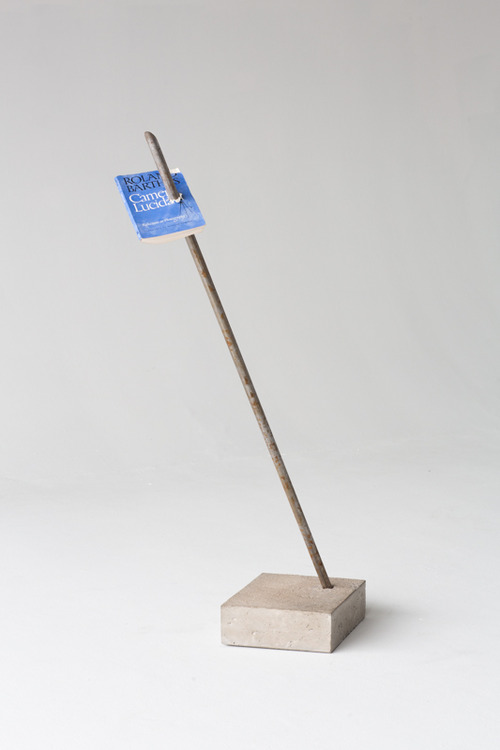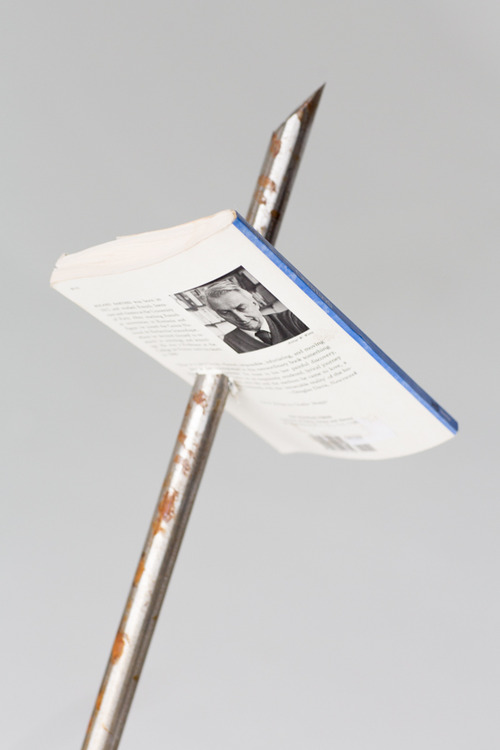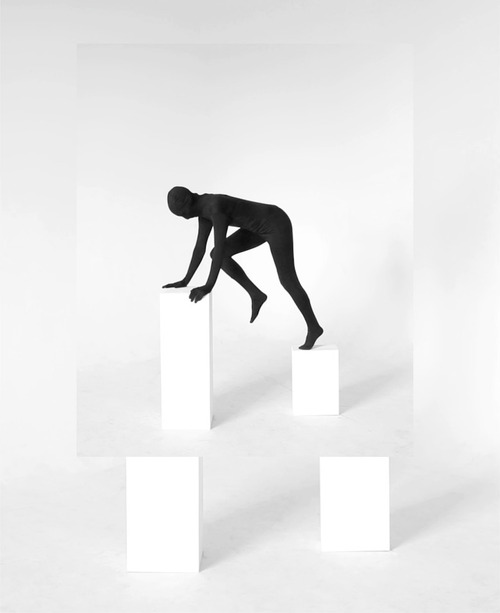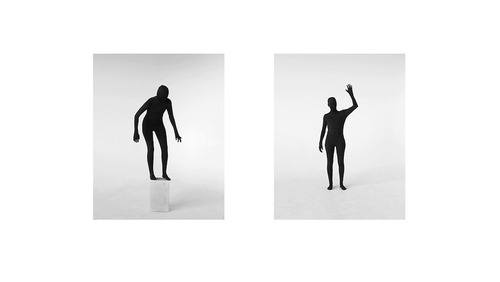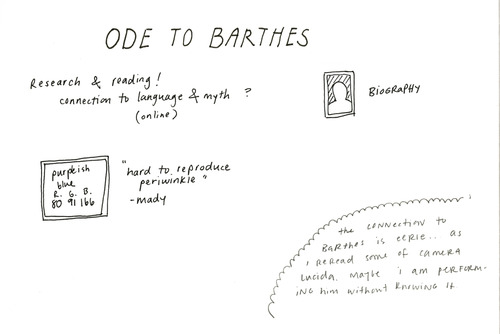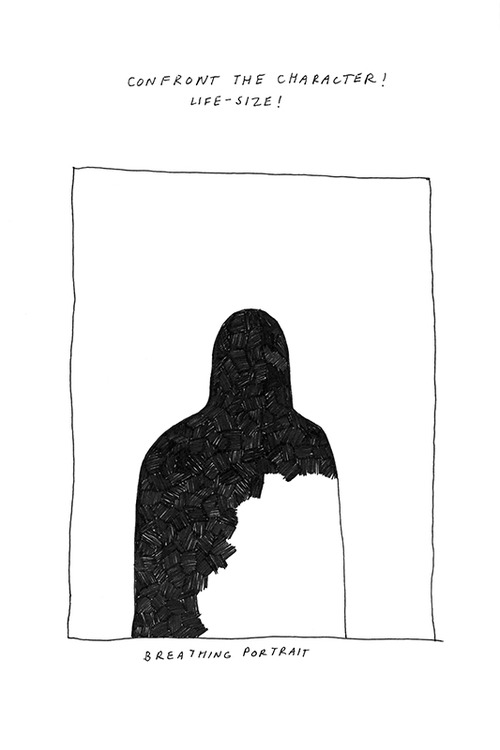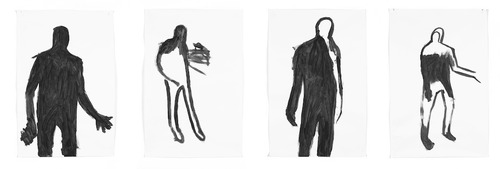Alumni Feature – Lizz Thabet
Bio: Lizz Thabet is a multimedia artist originally from Raleigh, North Carolina. In 2010, she moved to New York to pursue her BFA at Rochester Institute of Technology, where she studied photography and visual culture. Lizz’s work addresses the intersection between language, experience, and images. Incorporating ideas from trauma studies, cyborg theory, and visual culture, her work is often driven by questions and a desire to make accessible what has felt inaccessible to her own understanding. Lizz has been involved with Afterimage: The Journal of Media Arts & Cultural Criticism, Visual Studies Workshop, IMG/ROC, and Women’s Studio Workshop.
How did you come to the idea of your current body of work, The Character?
The Character began halfway through my time at RIT as my ideas about my art-making practice were shifting. During that time, I started seeking out writings and theory on photography, because I felt like an essential part of making pictures was getting to know the medium in a thoughtful, critical way. I started reading Roland Barthes, Susan Sontag, John Berger, and Walter Benjamin, who situated the practice of photography not only in a social and political space, but also in an ontological one.
As energizing as these ideas were, they complicated my notion of Photography proper, and they challenged what I thought Photography could do. Whereas previously I had been using photography as a tool to navigate personal experiences, now I stopped making photographs almost entirely. Instead I found myself trying to have a dialog with “Photography”––or rather, my idea of Photography––directly. And this is how the Character was born.
How did your program at RIT affect your work?
Through the Fine Art Photo program, I was really fortunate to be able to adapt the coursework to my interests, taking a few graduate level courses in visual culture and also combining a multidisciplinary mix of subjects. The “thinking” classes stimulated my making, and vice versa. I also benefited from being around my friends & peers in the program, who were immersed in their work, pushing it and themselves to new levels, which encouraged me to do the same. Even though I stopped making pictures then, the ideas of the medium were still a crucial part of my practice.
Do you have a memorable experience with any RIT photo faculty that has had a lasting impact on you and your outlook on photography?
I remember sitting in Jessica Lieberman’s class on Traumatic Images the first day of my sophomore year. We deconstructed the notion of trauma and drew a parallel between it and photographic images. It completely blew my mind, and I remember thinking, Shit, this is everything I’ve ever wanted from my education. I came away from many of Jessica’s classes the same way—energized and full of questions. That first course exposed me to thinking about Photography as a proper noun, and it’s where my interest in the field of visual culture began.
In my core photography courses, I was fortunate to have professors like Oscar Palacio, Kirby Pilcher, Meredith Davenport, and Greg Halpern, to name a few, who were patient with me as I was questioning and struggling to articulate my ideas. They kept encouraging me to push my own work.
Where are you working now? What impacts has it had for you as a working artist?
I’m currently working for Women’s Studio Workshop, an arts organization located in the Hudson Valley that supports women artists through residencies and grants. It’s been around for forty years, run by four strong, amazing women, and is known internationally for its artists’ books. I interview and write about the resident artists for WSW’s blog, as well as manage other aspects of its digital content.
So far, it’s been a pretty amazing and challenging experience. I’m exposed to a variety of artists and their practices, which is expanding my vocabulary about art, and giving me access to a rich artistic community. As every fresh graduate is feeling right now: it’s scary and exciting to see where your work is going to go in the next few years. The challenge (my challenge) is to not think about, just do it.
What’s exciting to you about what is happening in current photography? Are there any new books or projects you have been looking at lately?
I hate to admit that I don’t have much of a sense of what “contemporary photography” is or where it might be located. (I spent a lot of time, and sometimes still do, trying to avoid it, haha.) Two photography staples on my bookshelf include: Riley and His Story, Me and My Outrage, You and Us by Monica Haller and The Photograph Commands Indifference by Nicholas Muellner. Much of what I’ve been reading and looking at has revolved around picture theory, cyborg studies, and post-internet art. I’ve also been really captivated by Pia Lindman’s work lately.
Do you have any advice for current students?
Follow your intuition, and do your work. Take it to the next level.
You can find more of Lizz’s work at www.lizzthabet.com.
